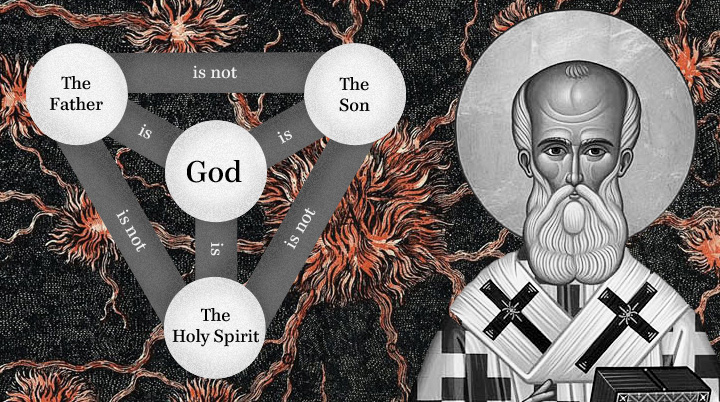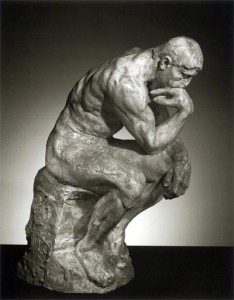 Pastor John, could you explain the term “Zion”? The word seems to mean different things in the Bible.
Pastor John, could you explain the term “Zion”? The word seems to mean different things in the Bible.
You are right in suggesting that the word “Zion” has different meanings. The word has undergone a progressive series of usage as the Bible has unfolded.
The first time “Zion” is mentioned in Scripture is 2 Samuel 5:7 where we are told, “David took the stronghold of Zion (that is, the City of David).” The New Illustrated Bible Dictionary says, “Zion… was the name of the ancient Jebusite fortress situated on the southeast hill of Jerusalem at the junction of the Kidron Valley and the Tyropoeon Valley. The name came to stand not only for the fortress but also for the hill on which the fortress stood. After David captured “the stronghold of Zion” by defeating the Jebusites, he called Zion “the city of David” (1 Kings 8:1; 1 Chron 11:5; 2 Chron 5:2).”
Later on, Solomon built the awesome Temple structure on Mount Moriah (not the same hill as Zion) and moved the ark of the covenant there. This brought a new use to the word Zion as indicating the Temple itself and the surrounding area. Certain Psalms tells us this (2:6; 48:2; 11-12; 132:13).
It was not long until Zion became synonymous as a name for the city of Jerusalem, the land belonging to Judah and for the people of Israel. Isaiah 40:9 says, “Get you up to a high mountain, O Zion, herald of good news; lift up your voice with strength, O Jerusalem, herald of good news; lift it up, fear not; say to the cities of Judah, “Behold your God!”” Zech 9:13 speaks of the people of God as “the sons of Zion” indicating that the word had come to designate the entire people of Israel (Isa 60:14).
Zion is called the dwelling place of God (Psalm 9:11). The entire Psalm 48 is a song of celebration concerning Zion being the city of God. The first three verses read, “Great is the Lord and greatly to be praised in the city of our God! His holy mountain, beautiful in elevation, is the joy of all the earth, Mount Zion, in the far north, the city of the great King. Within her citadels God has made himself known as a fortress.”
Psalm 132: 13,14 – “For the Lord has chosen Zion; he has desired it for his dwelling place: “This is my resting place forever; here I will dwell, for I have desired it.”
Joel 3: 17 – “So you shall know that I am the Lord your God, who dwells in Zion, my holy mountain.”
There are at least then four uses of the word found in Scripture. Zion is a hill in Jerusalem; the city of Jerusalem itself; the people of God, as well as the dwelling place of God.
How do we determine how the word is being used in our Bibles? The answer is that whenever we encounter the word “Zion,” the context will tell us which usage is in play.
Having said all this, the New Testament gives us added insight into the word. In a passage in Hebrews 12 we are told:
“18 For you have not come to what may be touched, a blazing fire and darkness and gloom and a tempest 19 and the sound of a trumpet and a voice whose words made the hearers beg that no further messages be spoken to them. 20 For they could not endure the order that was given, “If even a beast touches the mountain, it shall be stoned.” 21 Indeed, so terrifying was the sight that Moses said, “I tremble with fear.” 22 But you have come to Mount Zion and to the city of the living God, the heavenly Jerusalem, and to innumerable angels in festal gathering, 23 and to the assembly of the firstborn who are enrolled in heaven, and to God, the judge of all, and to the spirits of the righteous made perfect, 24 and to Jesus, the mediator of a new covenant, and to the sprinkled blood that speaks a better word than the blood of Abel.”
What a revelation this is concerning what is taking place as we gather as the people of God. When we come together in worship on earth, we are also entering sacred space, into heaven itself, joining with Old testament saints, New testament saints, and all the holy angels, and into the immediate presence of God Himself… all are present in heavenly Zion.
Though a Church service may have only a few present in earth, it is actually a joining together of all the saints, for in the spiritual realm, there are always millions present – we join the heavenly host – the saints of all ages and the heavenly host of countless angels in festal array – in worship to our God.
In this sense, this is not heaven coming down to earth, but the exact opposite. Throughout the centuries, the Christian community have not always been the power players ina society. Certainly that is the case in many parts of the world today. The people of God have met (and continue to meet) in very mundane surroundings, perhaps few in number, huddled together under the threat of persecution and great affliction. Yet, when the local Church gathers, rather than heaven coming down, God allows the often tired earthly pilgrims to enter sacred space – for while physically present on earth, we join the heavenly choir.
As we gather as the local Church, our meeting may take place in a cathedral, with its grandiose architecture and splendor; or it might be in a hewn out cavern, in a barn or in the woods, and yet each of us join the gathered community in heaven, joining the service already in progress, in worship of our great King.
One day heaven will come down. Rev 21, 22 shows us that. But now, as we gather together to worship, we the Church enter sacred, holy, heavenly space. We have come to Mount Zion and to the city of the living God.
May this knowledge stir our hearts to join with Abraham, Isaac and Jacob; with Daniel, David, Moses and Isaiah, all in the worship of God. May we join with Ruth and Mary and Hannah; with Zechariah, Samson, Peter and Paul, Barnabas and John; with Polycarp and Jerome, with Athanasias and Augustine; with Luther, Calvin, Whitefield, Wesley, Edwards and Spurgeon; with Gabriel, Michael and all the holy angels; and with loved ones who have gone on to glory before us who stand in the presence of God – thousands upon thousands, and thousands upon thousands more. Lets join them in song, even now… we have come to Zion for this very purpose; to proclaim the praises of Him who has called us out of darkness into His marvellous light.


 1. GOD freely justifies the persons whom He effectually calls. He does this, not by infusing righteousness into them, but by pardoning their sins and by accounting them, and accepting them, as righteous. This He does for Christ’s sake alone, and not for anything wrought in them or done by them. The righteousness which is imputed to them, that is, reckoned to their account, is neither their faith nor the act of believing nor any other obedience to the gospel which they have rendered, but Christ’s obedience alone. Christ’s one obedience is twofold – His active obedience rendered to the entire divine law, and His passive obedience rendered in His death. Those thus justified receive and rest by faith upon Christ’s righteousness; and this faith they have, not of themselves, but as the gift of God.
1. GOD freely justifies the persons whom He effectually calls. He does this, not by infusing righteousness into them, but by pardoning their sins and by accounting them, and accepting them, as righteous. This He does for Christ’s sake alone, and not for anything wrought in them or done by them. The righteousness which is imputed to them, that is, reckoned to their account, is neither their faith nor the act of believing nor any other obedience to the gospel which they have rendered, but Christ’s obedience alone. Christ’s one obedience is twofold – His active obedience rendered to the entire divine law, and His passive obedience rendered in His death. Those thus justified receive and rest by faith upon Christ’s righteousness; and this faith they have, not of themselves, but as the gift of God. I think the Lord convicted me of how prayerless my ministry can be. I mean, if I believed that ministry were God’s work and not mine, wouldn’t I be asking for him to engage in that work a whole lot more than I do? Why is it that I’m so much more disciplined and diligent to do the work myself rather than rely on the one whose work it is in the first place? Answer: I am self-reliant. I have a deficiency of dependence.
I think the Lord convicted me of how prayerless my ministry can be. I mean, if I believed that ministry were God’s work and not mine, wouldn’t I be asking for him to engage in that work a whole lot more than I do? Why is it that I’m so much more disciplined and diligent to do the work myself rather than rely on the one whose work it is in the first place? Answer: I am self-reliant. I have a deficiency of dependence.
 This is an excellent presentation concerning understanding the concepts people have in their minds when we share the Gospel. It’s not a quick read, but Dr. Tim Keller’s grasp of how to communicate the Gospel to the Western mind is outstanding. Of course, that’s just my opinion so you’ll have to check it out for yourself:
This is an excellent presentation concerning understanding the concepts people have in their minds when we share the Gospel. It’s not a quick read, but Dr. Tim Keller’s grasp of how to communicate the Gospel to the Western mind is outstanding. Of course, that’s just my opinion so you’ll have to check it out for yourself: “Suppose the first American astronauts to walk on the moon had brought back, along with moon rocks, an oblong black box that appeared from the outside to have been crafted by machines. Suppose further that, when opened, the box contained the workings of a camera: it had parts that functioned like the lens, shutter, and other components of a camera. Obviously, such an object would excite enormous and justifiable curiosity about how it came to be. It is hard to imagine any skeptic’s gaining respect by maintaining that the principle of sufficient reason did not apply to such an object. Equally absurd would be efforts to explain the box in terms of chance, natural forces. The very nature of the object pointed to its having been made by an intelligent being. The human mind properly balks at the suggestion that a cameralike object was produced by chance, natural forces. But then how much more should we reject claims that something far more intricate, such as the human eye, resulted from anything less than an intelligent being.” Ronald Nash, Faith and Reason (Grand Rapids: Zondervan, 1994, p. 135.)
“Suppose the first American astronauts to walk on the moon had brought back, along with moon rocks, an oblong black box that appeared from the outside to have been crafted by machines. Suppose further that, when opened, the box contained the workings of a camera: it had parts that functioned like the lens, shutter, and other components of a camera. Obviously, such an object would excite enormous and justifiable curiosity about how it came to be. It is hard to imagine any skeptic’s gaining respect by maintaining that the principle of sufficient reason did not apply to such an object. Equally absurd would be efforts to explain the box in terms of chance, natural forces. The very nature of the object pointed to its having been made by an intelligent being. The human mind properly balks at the suggestion that a cameralike object was produced by chance, natural forces. But then how much more should we reject claims that something far more intricate, such as the human eye, resulted from anything less than an intelligent being.” Ronald Nash, Faith and Reason (Grand Rapids: Zondervan, 1994, p. 135.)
 ?”The only thing that a man can contribute to his own redemption is the sin from which he needs to be redeemed.” – William Temple
?”The only thing that a man can contribute to his own redemption is the sin from which he needs to be redeemed.” – William Temple [This editorial is found in Peace and Truth, the magazine of the Sovereign Grace Union, written by John Brentnall – www.sgu.org.uk]
[This editorial is found in Peace and Truth, the magazine of the Sovereign Grace Union, written by John Brentnall – www.sgu.org.uk] Calvin says the same: those who try to overturn “that prime article of our faith . . . God’s eternal predestination . . . demonstrate their malice no less than their ignorance.” In view of his approaching death, he wrote: “I John Calvin, servant of the Word of God in the Church of Geneva . . . have no other hope or refuge than His predestination, on which my entire salvation is grounded.”
Calvin says the same: those who try to overturn “that prime article of our faith . . . God’s eternal predestination . . . demonstrate their malice no less than their ignorance.” In view of his approaching death, he wrote: “I John Calvin, servant of the Word of God in the Church of Geneva . . . have no other hope or refuge than His predestination, on which my entire salvation is grounded.”